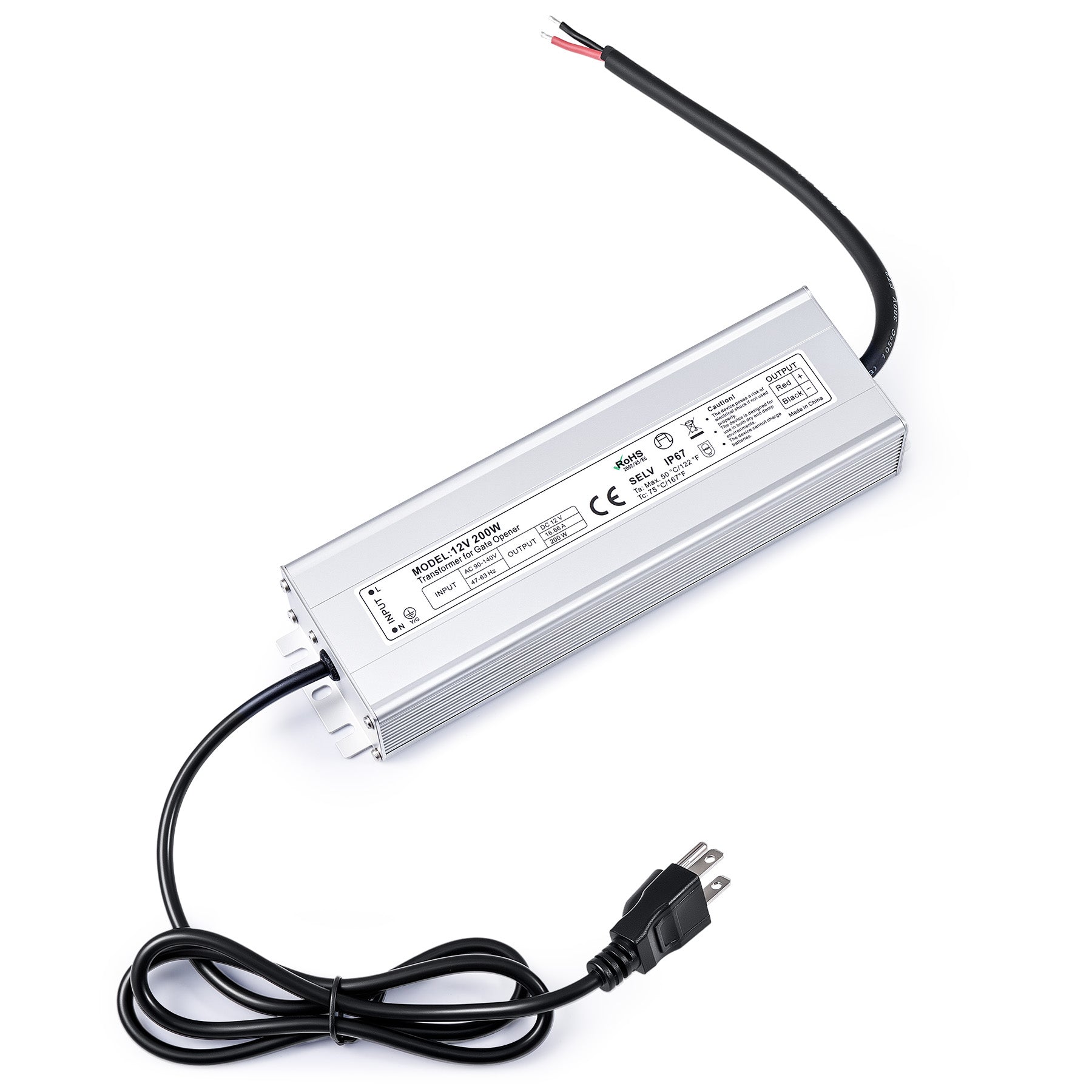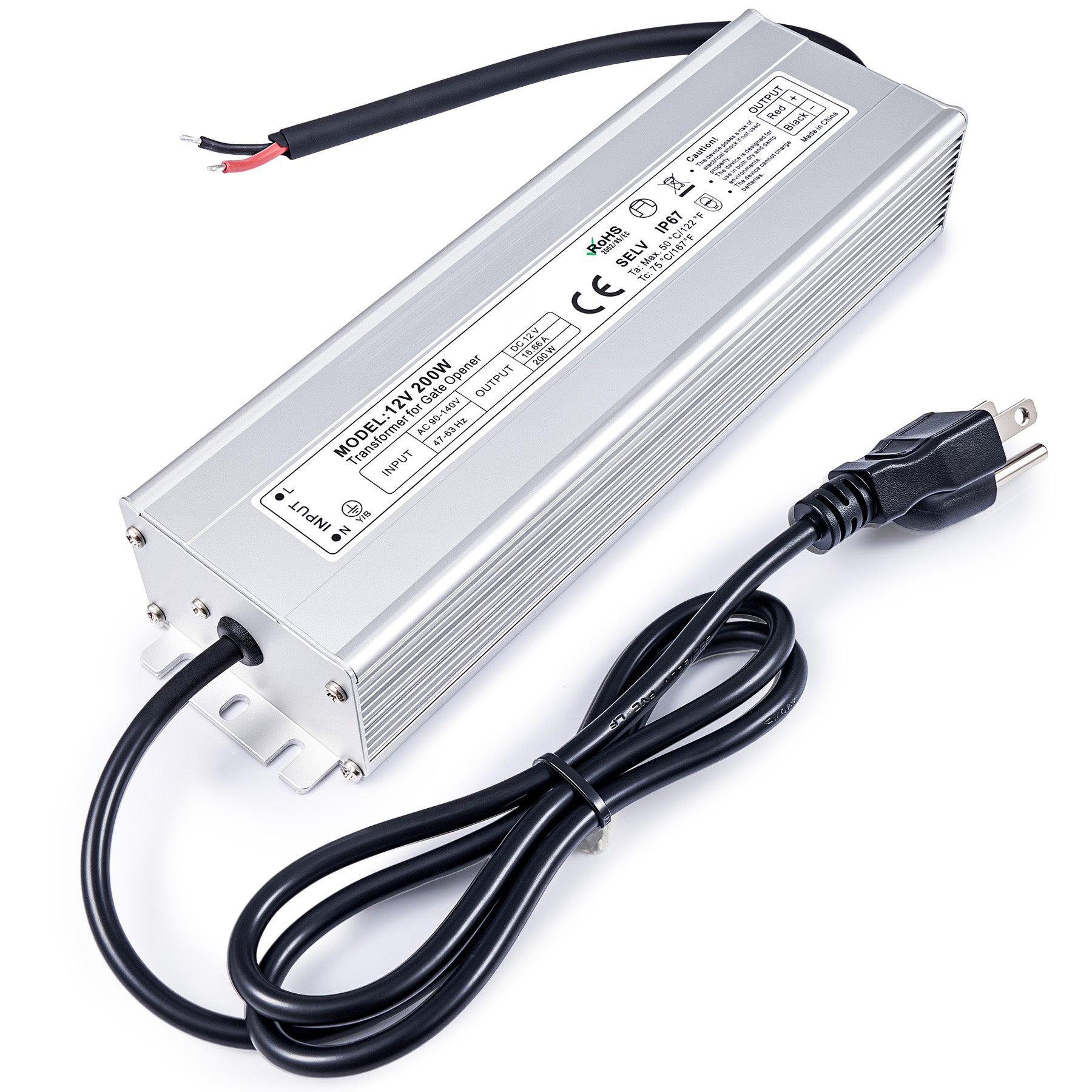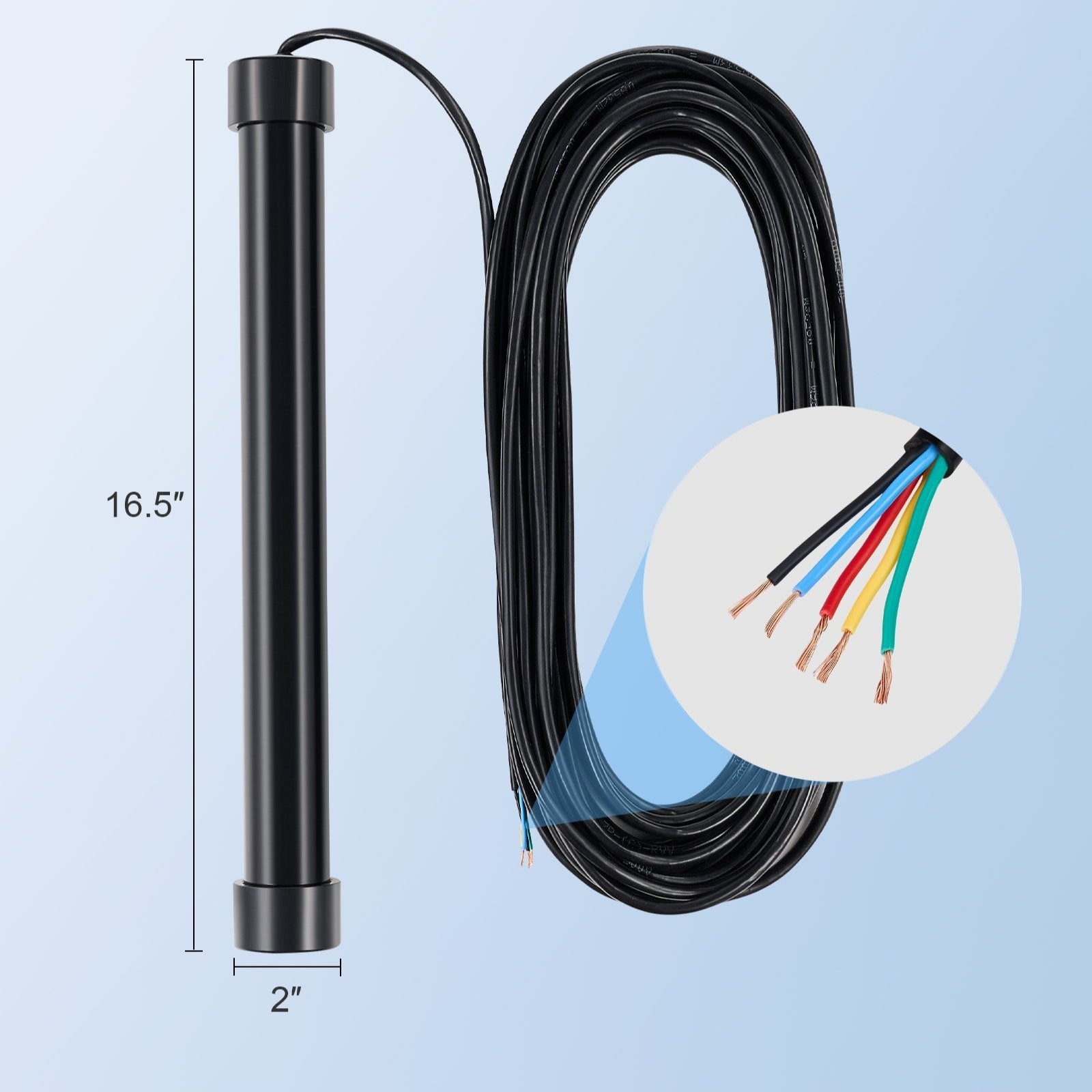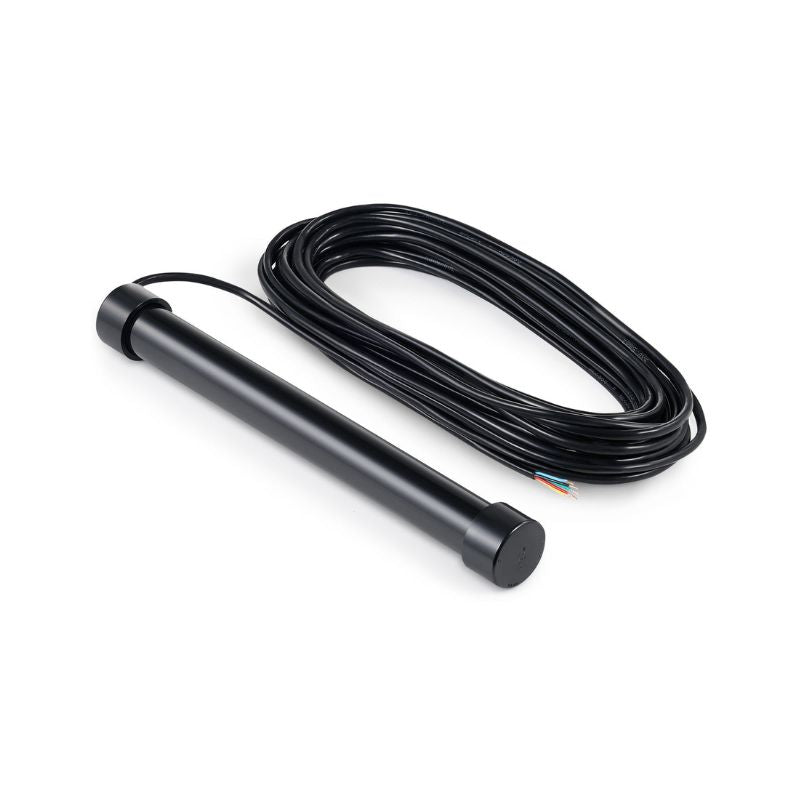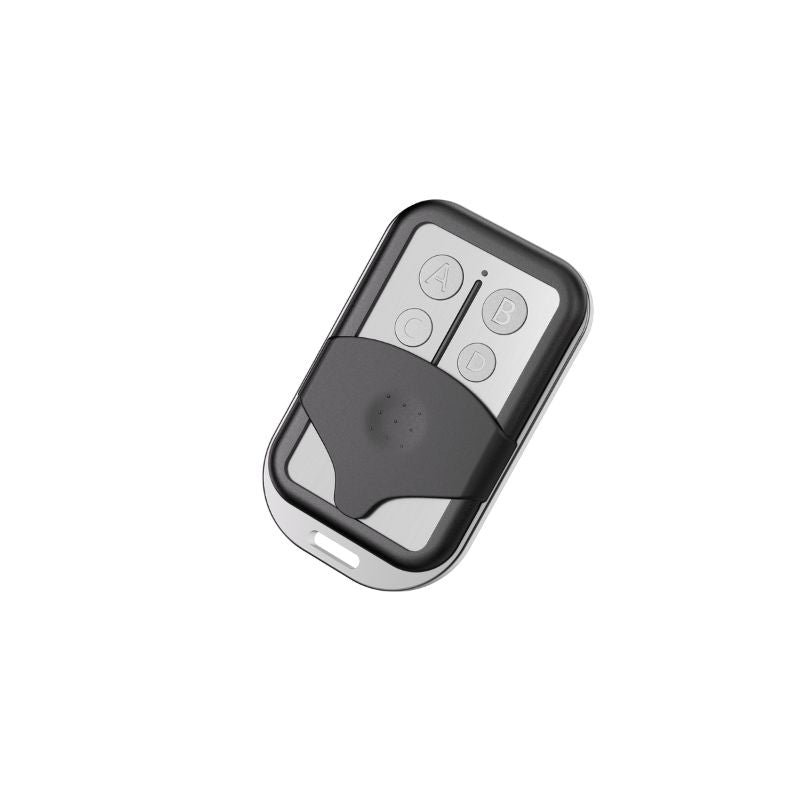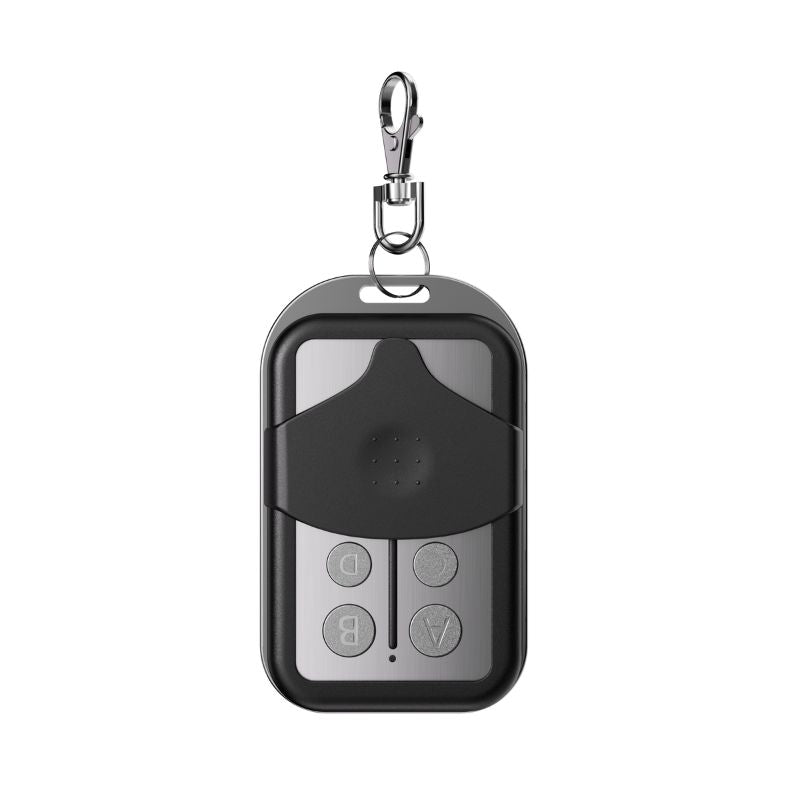If your automatic gate opener keeps opening and closing by itself, the problem is likely being caused by interference or faulty components. This problem is more common than people realize, but it is (usually) pretty straightforward to solve.
Gate opener malfunctions can be frustrating and potentially dangerous. So, what should you do if your gate opener keeps opening and closing by itself?.
We are breaking down four common problems that can cause your gate opener to open and close on its own, how each of these problems manifests, and how to fix them.
Problem #1: There is Radio Frequency (RF) Interference
Radio frequency interference is the most common cause of a gate opener malfunctioning, and it often results in erratic opening and closing.
Radio frequency interference can cause your gate to open or close randomly, without any input from a remote, keypad, or app, and at specific times or seemingly without a pattern, day or night.
To solve this particular problem and prevent it from recurring, it is essential to first understand how it happens in the first place.
Why Radio Frequency Interference Happens
Gate openers work using radio signals from remotes or wireless keypads. Many gate openers use common frequencies like 433 MHz or 315 MHz, which are unlicensed and shared across many devices.
- If another device nearby (garage door opener, neighbor’s gate, ham radio, wireless baby monitor, etc.) uses the same or overlapping frequency, it can accidentally trigger your opener.
- In some cases, the gate opener’s receiver might be too sensitive or not properly shielded, making it prone to picking up stray signals.
If you live in a dense area like a neighborhood or an apartment complex, the risk of cross-signals is high.
How to Resolve Radio Frequency Interference
The most reliable way to get rid of radio frequency interference is to upgrade to remotes and keypads that use rolling codes or encrypted signals.
Rolling code encryption generates a new signal each time, and makes it harder for interference to trigger your gate.
Try 128-Bit Rolling Code
For an automatic gate opener, you might want to consider a 128-bit rolling code.
Modern automatic gate openers use an exclusive 128-bit encrypted rolling code that is nearly impossible to crack, and it offers superior security to what the standard 64-bit systems provide.
This should be a major consideration if you are looking to buy an automatic gate opener.
Other Ways of Dealing with RF Interference
- Install an external antenna to avoid overlap from nearby devices.
- Shield or replace the receiver to resist the interference better.
Try to identify the source of the interference by discussing with your neighbors or testing your gate with other wireless devices.
Related: How Zumi Gate Openers Provide Maximum Security
Problem#2. The Remote Control Button is Stuck Or Faulty.
A gate opener remote control button being stuck or faulty is also a major cause of the gate opener opening and closing randomly. With frequent use, the mechanical button mechanism wears down, gets dropped, sat on, or exposed to heat.
When a remote control button is stuck or faulty, the gate might repeatedly open or close when:
- The remote is in a pocket, drawer, or vehicle.
- The remote is moved, bumped, or touched.
Sometimes, other control methods may not work until the stuck remote is removed or deactivated.
How to Identify the Problem
There are two methods to identify if a stuck or faulty remote control is causing your gate to open and close by itself:
Method One: Isolate the Remote
- Remove the batteries from all remotes one at a time. Then wait and observe the gate.
- If the random opening/closing stops after one remote is disabled, that’s the faulty one.
Method Two: Inspect the Remote
- Check if the buttons are sticking or feel “mushy.”
- Lightly press and release the buttons—do they pop back up?
- Open the casing (if safe) and check for corrosion, broken plastic, or stuck parts.
How to Fix A Stuck or Faulty Remote Control Button
- Use isopropyl alcohol and a cotton swab to gently clean the internal button contacts. Make sure everything is dry before putting the remote back together.
- If the button is physically damaged or the signal is continuously being sent even after cleaning, replace the remote entirely.
Sometimes the remote is just not good enough. Inexpensive remotes often lack build quality, which means their housing is easily dented, and buttons easily get stuck.
Good brands, however, know how to avoid this problem. These Gate opener remote controls from Zumi are designed to be sturdy and compact, with buttons that pop out, and a solid ergonomic design for easy use. BTW, they reach an extended range of 100 ft.
You can reprogram a new remote to your gate opener easily—most systems have a “learn” or “pair” button for this.
Pro Tip: Always Have a Spare Remote
Keep one remote in use, and store others in a drawer without batteries until a moment like this, when you might need it. This limits interference, especially if you’re troubleshooting.
Problem#3. Power Surges or Electrical Interference
Power surges or electrical interference might also cause your gate opener to start opening and closing unexpectedly after a storm, power outage, or flicker in electricity.
The gate might start behaving erratically—opening halfway, stopping mid-cycle, or refusing to respond.
Power surges or electrical interference happen because most gate openers are installed outdoors, where they’re directly exposed to weather-related power disturbances.
What Causes Power Surges/Electrical Interference?
Power surges are caused by sudden jolts of electricity (from lightning or unstable grid power) and can temporarily overwhelm the gate opener's control board.
- They sometimes reset memory, damage sensitive components, or trigger random actions.
- Electrical interference is caused by heavy-duty equipment, such as AC compressors, welders, or pool pumps, cycling on and off nearby.
These can generate electromagnetic interference (EMI) that disrupts the opener's electronics.
How to Fix Power Surges and Electrical Interference
- Check and replace the control board if damaged.
- Reset the system by powering the gate opener off completely for 1–2 minutes and restarting it.
- Reprogram if necessary, as power loss may erase memory on less expensive boards.
- Install a surge protector or lightning arrestor specifically rated for gate opener systems.
-
Avoid sharing the gate opener’s power line with high-power devices.
If EMI is suspected, consider installing a line filter or ferrite core on power and signal wires to block electrical noise.
Pro Tip
If you live in a storm-prone area, use a battery backup with built-in surge protection. This keeps your system stable during both power surges and power outages.
Problem #4: The Loop Detector is Faulty, or The Sensors are Faulty
The gate opens when no vehicle is present, as if an invisible car just rolled over the driveway; it may be a faulty loop detector or a malfunctioning sensor.
Loop detectors are wired into the driveway surface and detect metallic objects (vehicles). If the loop wire is damaged, frayed, or poorly sealed, it can send false signals to the control board.
When your loop detector is faulty:
- The gate opener may stay open longer than usual or repeatedly open/close on its own.
- You might hear clicks or relays firing inside the control box even when nothing is near the gate.
- It often worsens in wet weather or after temperature changes, and may trigger randomly during the day.
Loop detectors are buried underground, making them hard to inspect and exposed to the elements 24/7. Improper installation (like poor wire sealing or shallow trenching) can lead to early failure. Older or cheaper detectors are not auto-calibrating, making them prone to drift and errors over time.
How to Fix a Faulty Gate Opener Loop Detector
Step 1: Check the Detector LED or Status Indicator
- Most detectors have an LED that lights up when a vehicle is detected.
- If it’s stuck on or flashing erratically without a vehicle present, that’s a clear sign of malfunction.
Step 2: Recalibrate or Adjust Sensitivity
- Turn down the sensitivity settings slightly on the detector box.
- Many detectors have DIP switches or digital controls for this—refer to the model’s manual.
Step 3: Inspect Loop Connections
- Open the junction box and check for corroded terminals, loose wires, or moisture.
- Dry the area, clean terminals, and re-tighten connections.
Step 4: Test Resistance of the Loop
- Use a multimeter to check continuity and resistance.
- If the resistance is too high or inconsistent, the wire may be damaged underground and needs to be replaced.
Step 5: Replace or Upgrade the Detector
- If recalibrating and checking wiring doesn’t help, replace the loop detector with a modern, self-tuning unit.
- Some newer detectors are better at filtering noise and ignoring minor metal objects.
Other Causes of the Gate Opener Opening and Closing on Its Own
Problem#5. The Auto-Close Time is Misconfigured
- How it manifests: The gate opens or closes on a delay, even when no one is around.
- Cause: Timer settings may be incorrect or corrupted.
- Fix: Check your control board settings and disable or adjust the auto-close function as needed.
Problem#6. Wiring is Short, or There is Moisture Ingress
- How it manifests: Behavior worsens in rain or humidity.
- Cause: Corroded or exposed wires can trigger false signals.
- Fix: Inspect junction boxes and wire connections. Reseal and replace the affected wiring.
When to Call a Technician
If basic troubleshooting doesn’t stop the phantom activity, it’s time to consult a gate technician. They can:
- Use RF spectrum analyzers to detect overlapping signals.
- Reprogram or replace the control board.
- Ensure safety features (like photocells) are working correctly.
Get Top Quality Gate Opener
If you're starting from scratch, a hybrid-capable opener is hands-down the best move. They are designed to switch automatically between solar/battery and AC Power.
Zumi Gate Openers, for example, offer four flexible power options to suit your needs: solar panels for off-grid use, battery or AC power for reliable energy, or both solar and battery power for optimal performance in any situation.



